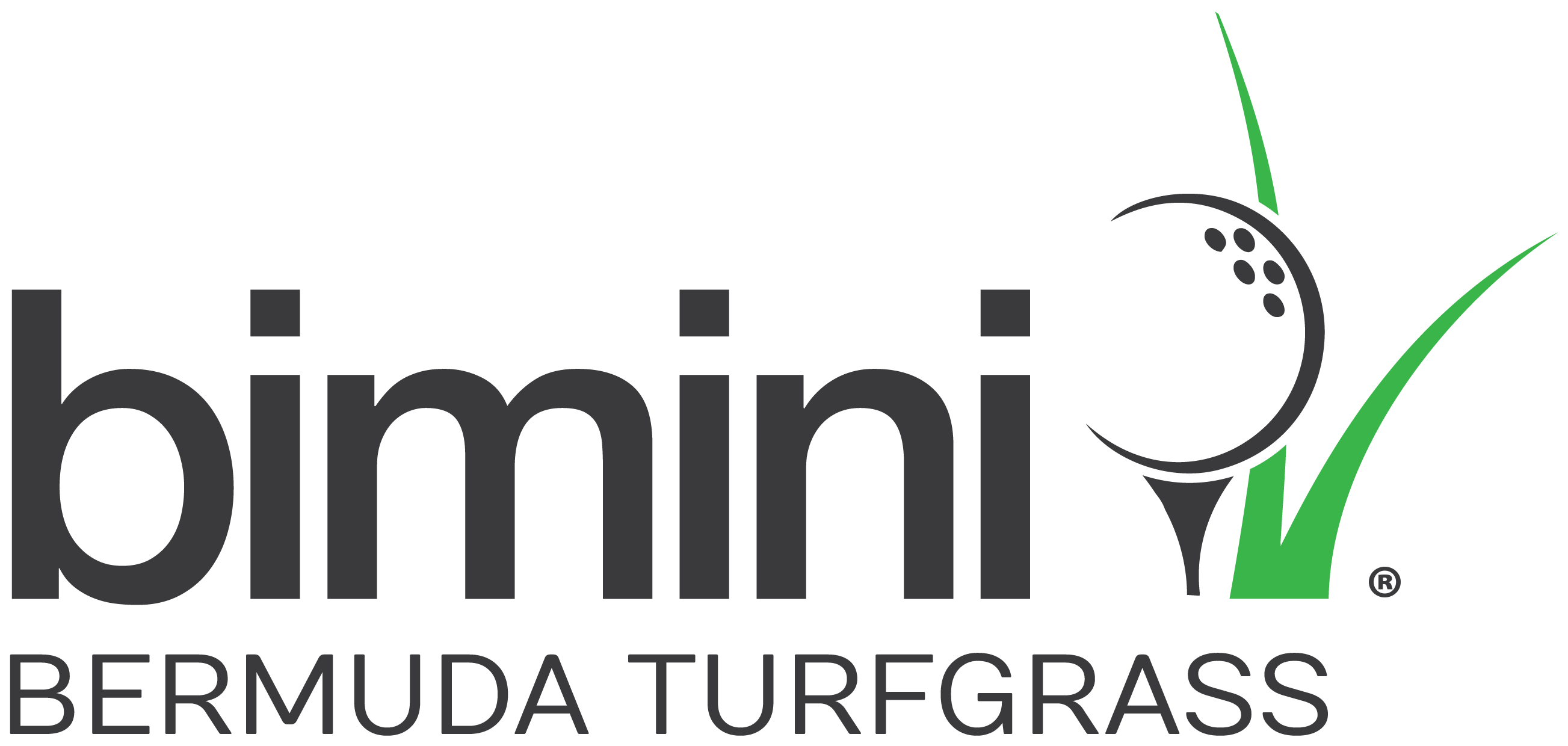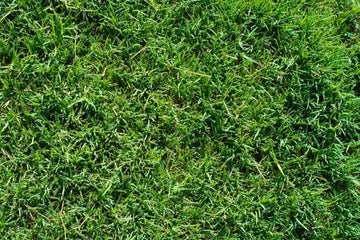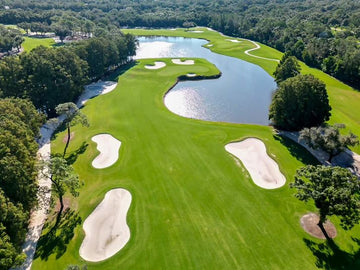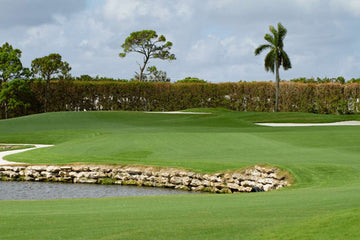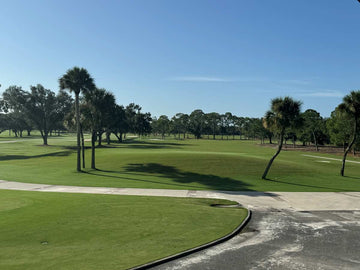
Among all warm-season grass varieties, Bermuda grass emerges as a favorable option for homeowners seeking a visually appealing lawn.
Compared to Zoysia and St. Augustine grass, Bermuda grass demands more attention to maintenance. But its superior aesthetics make it worth the higher upkeep. Adding to its allure is its resilience to heat, drought, and heavy traffic, along with its ability to thrive in various soil conditions and recover quickly from injury.
There are various Bermuda grass varieties available today, each possessing distinct qualities and intended uses. One that has been attracting significant attention is BIMINI® Bermuda grass, an improved variety that adapts to many uses, from residential lawns to golf courses.
BIMINI® Bermuda: An Overview
Bermuda grass belongs to the Cynodon genus and traces its roots back to Africa over 150 years ago. Characterized by its fine blades and emerald green color, this grass species thrives in warm, tropical, and subtropical climates, tolerating various conditions, particularly extreme heat and drought. It experiences peak growth from mid-spring to early fall, entering a dormant state in winter when temperatures dip below 65°F, turning golden brown.
Over the years, several Bermuda grass varieties have been developed for enhanced performance. With more than 50 species in existence today, BIMINI® Bermuda stands out. This particular variety is bred to exhibit improved cold tolerance and heightened durability, making it an excellent option for areas subject to heavy foot traffic, including athletic fields.
Appearance
BIMINI® distinguishes itself from other Bermuda grass varieties with its beautiful dark green color and fine-textured leaves that feel incredibly soft underfoot. With an upright leaf growth and a rapidly spreading growth habit, it facilitates faster ground coverage and quick injury recovery.
Weather Tolerance
Bermuda grass performs well under full sun with remarkable resilience to various weather conditions. It is generally a superior option to other warm-season varieties, such as Zoysia grass and St. Augustine, regarding heat and drought tolerance.
BIMINI®, in particular, can withstand prolonged dry spells, retaining its vibrant color longer than other Bermuda grass varieties when exposed to harsh weather conditions. Moreover, while the common Bermuda grass traditionally struggles in shade, BIMINI® goes beyond expectations by thriving just fine in partially or fully shaded areas.
Winter Dormancy
As a warm-season grass, Bermuda often struggles with cooler temperatures, entering dormancy and turning brown as a survival response to cold weather. As an improved variety, BIMINI® overcomes this limitation with exceptional frost and cold tolerance.
It is slow to transition into dormancy during winter, retaining its vibrant color longer than other Bermuda grass varieties. Even in its dormant state, BIMINI® greens up early in spring once the weather becomes favorable. For homeowners, this means more days to enjoy a lush, beautiful landscape.

Wear Recovery
Despite its fine-textured blades, BIMINI® features an exceptional root system that improves its resilience against wear and tear, facilitating faster recovery. These unique characteristics explain why it is an ideal option for households with children and pets, as well as golf courses and sports fields where durability is crucial.
Soil Conditions
BIMINI® Bermuda grass thrives in well-drained and well-fertilized soils. However, it also adapts to various soil types and exhibits high salt tolerance. This quality makes it preferable in coastal areas where salt exposure can pose challenges in lawn maintenance.
In such environments, BIMINI® Bermuda's ability to resist the adverse effects of saltwater intrusion, poor irrigation, or mineral erosion contributes to its overall resilience.
Maintenance Requirements
With its inherent hardwearing qualities, BIMINI® Bermuda maintains its vibrant color with minimal fertilizer needs than other Bermuda varieties, and exhibits heightened resistance to pests and disease. It tolerates lower mowing heights between 0.5 and 1 inch, normally associated with fairways and roughs in golf courses and other athletic fields.
Ideal Use
BIMINI® Bermuda, with its fine-textured blades, rich dark green color, and outstanding wear tolerance, is a versatile choice for various applications, including residential lawns, golf courses, and athletic fields.
Golf courses, in particular, require a resilient and fast-recovering green cover—qualities that define BIMINI® Bermuda. It has earned recognition as the preferred option for golf courses, as evidenced by its recent successful application at the newly opened championship golf course at Panther National in Palm Beach. It showcases the grass's adaptability and suitability for a range of landscaping purposes.

Takeaway
Considering factors such as aesthetic appeal, durability, resistance to wear and tear, and disease resistance is crucial when deciding on the right grass for your lawn. In this regard, BIMINI® Bermuda grass emerges as a top-tier choice, offering an improved alternative to common Bermudagrass. With upgraded features, BIMINI® Bermuda delivers a distinct appearance and contributes to the overall health and resilience of your lawn.
